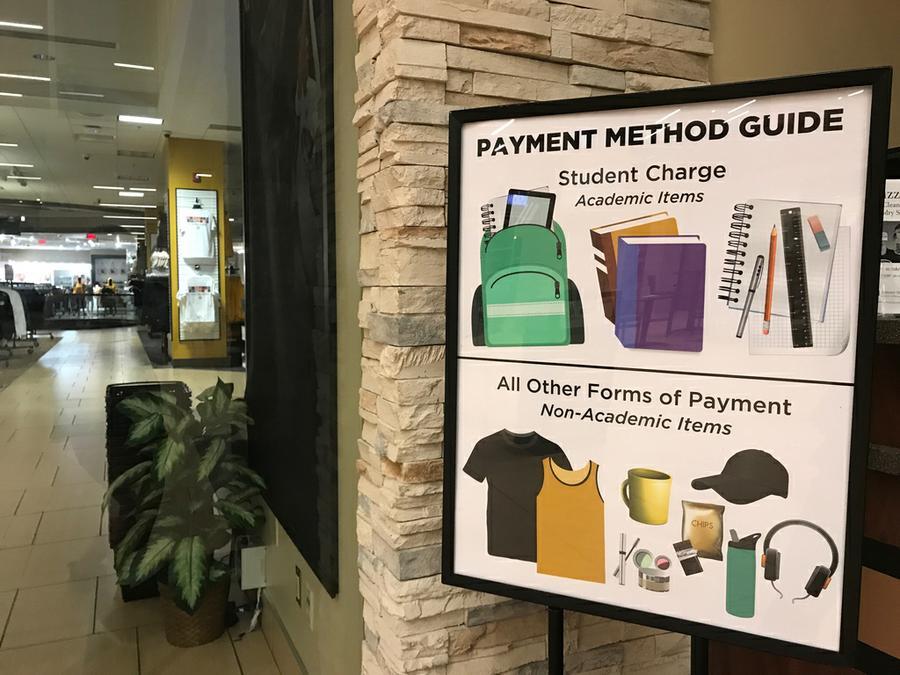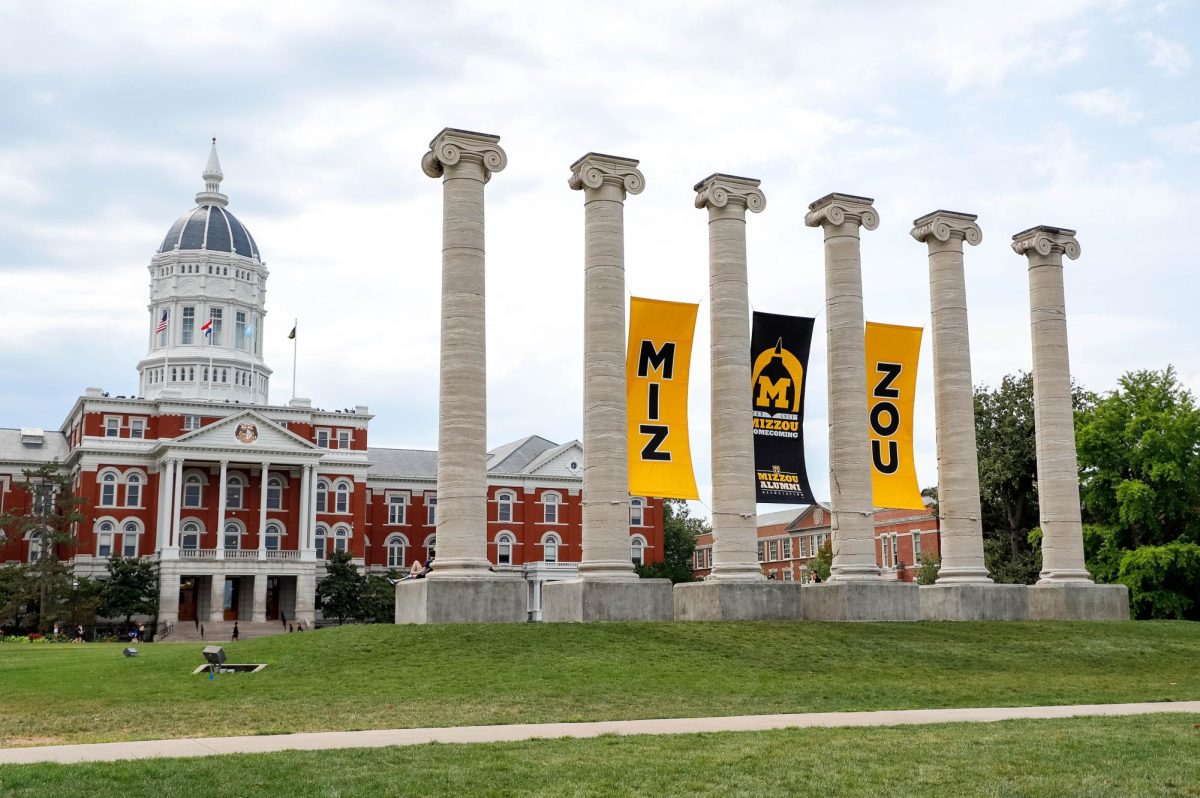Businesses on campus are suffering after changes to student charge and affordability initiatives were introduced this semester.
The Office of Cashiers [announced](https://www.themaneater.com/stories/2017/6/22/student-charge-will-be-limited-fall/) in July that student charge purchases at MizzouRec, Campus Dining Services and The Mizzou Store will be limited. Student charge is a credit form of payment many students have historically relied on to charge items such as coffee or clothing to their student accounts to pay off later.
Compared to last year’s term, starting July 1, The Mizzou Store has seen a 35 percent drop in course material sales, which can be student charged, a 19 percent drop in clothing sales and a 9 percent drop in snack sales. Sales of gift items were up 28 percent, likely due to the Aug. 21 solar eclipse, Liz McCune, associate director of the MU News Bureau, said in an email.
According to Jim Spain, vice provost of Undergraduate Studies, the guiding thought behind the decision to limit student charge was students’ academic success.
“The bookstore recognizes that they’re not there to be a profit center, but as a support center for students to get the materials they need,” Spain said.
Student charge was used to pay for 59 percent of Mizzou Store purchases last year and 52 percent of purchases this year, according to McCune.
McCune said that UM System President Mun Choi, Chancellor Alexander Cartwright and Spain are focused on reducing the financial burden on MU students and have implemented several initiatives within the past year in the wake of budget cuts and enrollment decline.
Last month, Cartwright and Pelema Morrice, vice provost for enrollment management, signed the Missouri Land Grant Compact, which will cover tuition and fees for all students eligible for the Pell Grant starting next fall. Pell Grant-eligible Honors College students will have room and board paid for as well.
Spain said that on July 17 there were 1,756 students who hadn’t re-enrolled for the fall following the spring semester. Of those 1,756, he said, 1,065 had a hold on their academic record. Of those 1,065 holds, 521 were cashiers holds from any of the 180 cost centers on campus.
Spain said that after receiving this information he did an audit of what these 521 students had charged at The Mizzou Store.
“A high percentage of the students had charged non-academic items, such as snacks, makeup and electronics,” Spain said.
A group of Missouri Students Association senators is currently working with Spain and other administrators to address the needs of students with “chronic financial shortfalls” who relied on student charge for things such as food and hygiene products. Spain said this committee is coming up with a few “safety net” approaches to find a solution that is “really going to be in the interest of [students’] long-term financial needs.”
This decision hasn’t come without opposition. In a Twitter poll conducted by the MSA Senate in June, 80 percent of the almost 500 students who responded said they were opposed to the new limitations.
Blaine Thomas and Drew Rogers, co-founders of The Bridge, a student business run though the Missouri Student Unions Entrepreneurial Program, also expressed dissatisfaction with the decision.
“As a student entrepreneur, what’s honestly painful is that people can go student charge a round of golf but they can’t come into the student unions and student charge a product made by a student entrepreneur in a store owned by student entrepreneurs,” Thomas said. “So the way I look at it is, if this whole student charge thing is gone, make it gone, but I don’t think it’s fair for the university to play a pick-and-choose game.”
Students can still use student charge for course materials at The Mizzou Store such as textbooks, pens and calculators because they are academic in nature. The limit of $1250 per semester will stay in place. Students can also charge tickets to some cultural and sporting events. The “round of golf” Thomas referred to can be student charged at the A.L. Gustin Golf Course.
“We pumped 70 percent of our revenue — $40,000 — back into the entrepreneurial program last year; our business was helping entrepreneurial students primarily,” Rogers said. “With this policy now in place, it’s not going to totally ruin our business at all, but it’s going to definitely impact it greatly, which is going to hurt student entrepreneurs on this campus.”
McCune and Spain both said that the drop in sales was likely due to lower enrollment, changes to student charge and the bookstore’s new textbook affordability initiative. Textbook prices are currently, on average, 18 percent cheaper than this time last year, McCune said.
According to Todd Mackley, assistant vice chancellor of finance administration, other schools in the Southeastern Conference use systems similar to the one MU is currently working to enforce — Tiger Cash, a prepaid payment option, treats the student ID more like a debit card than a credit card.
Mackley is currently leading a group working to identify cost centers affected by student charge, such as student-run entrepreneurial projects like The Bridge. But, with around 70 percent of The Bridge’s profits last year coming from student charge, Spain said this is not a sustainable business model.
“We are not going to support businesses not devoted to student success,” Spain said.
Both Rogers and Thomas understand why the limits have been put in place, and they believe the university’s intentions are good.
“I do wish that we, as people who were going to be directly affected by this decision, had at least been contacted about it,” Rogers said. “I don’t think they realize how big of a negative impact it will have on other parties. And this isn’t just us. It’s The Mizzou Store, too. It’s going to really hurt this campus and the type of capitalistic structure we have.”
_Edited by Olivia Garrett | [email protected]_














